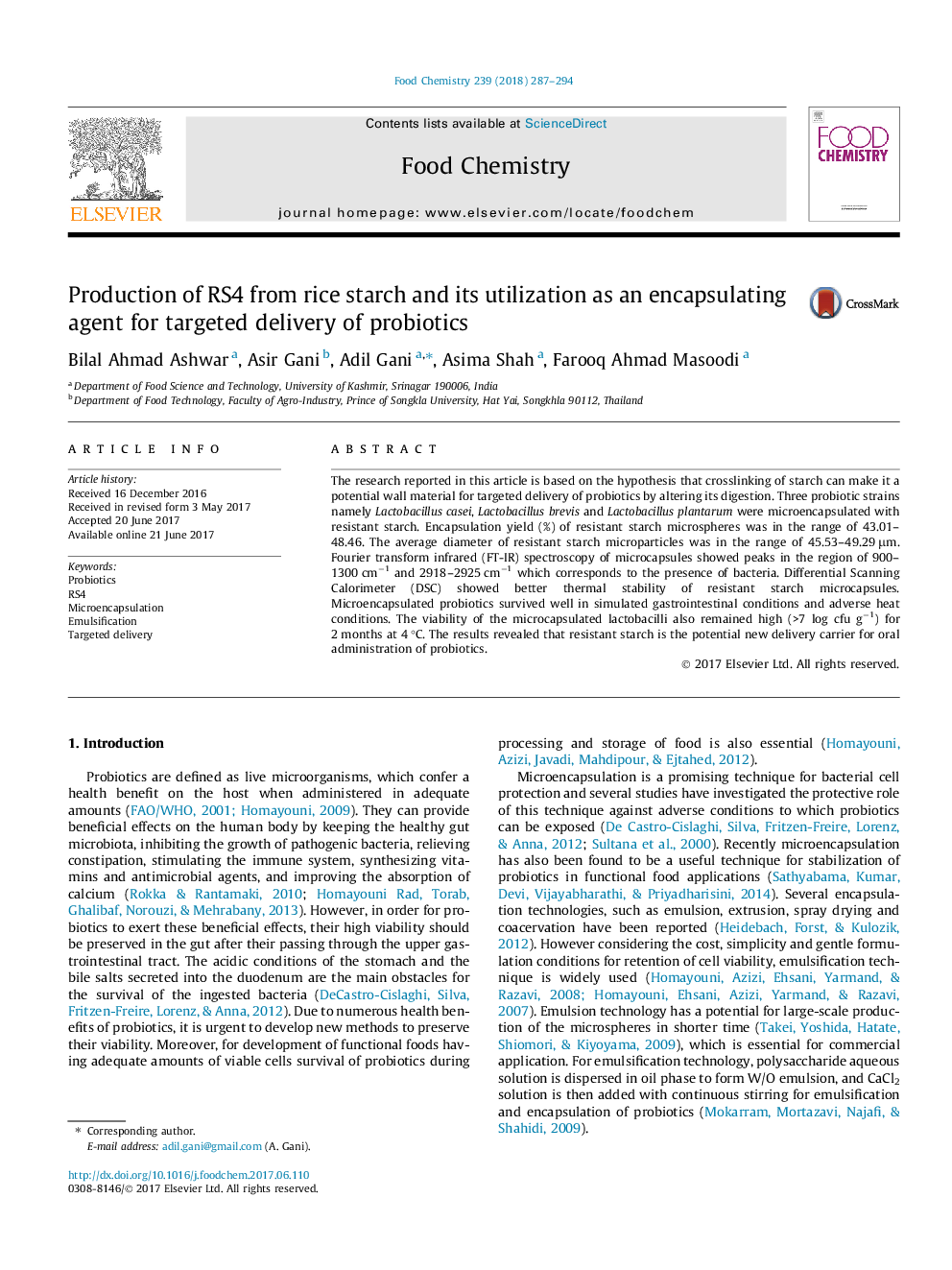| Article ID | Journal | Published Year | Pages | File Type |
|---|---|---|---|---|
| 5132972 | Food Chemistry | 2018 | 8 Pages |
â¢Encapsulation yield (%) of RS4 microparticles was in the range of 43.01-48.46.â¢The average diameter (μm) of RS4 microparticles was in the range of 45.53-49.29 μm.â¢The encapsulated probiotic bacteria survived well in simulated gastrointestinal conditions.â¢The viability of RS4 encapsulated probiotic bacteria remained high for 2 months at 4 °C.â¢RS4 shows the potential as a new delivery carrier of probiotics.
The research reported in this article is based on the hypothesis that crosslinking of starch can make it a potential wall material for targeted delivery of probiotics by altering its digestion. Three probiotic strains namely Lactobacillus casei, Lactobacillus brevis and Lactobacillus plantarum were microencapsulated with resistant starch. Encapsulation yield (%) of resistant starch microspheres was in the range of 43.01-48.46. The average diameter of resistant starch microparticles was in the range of 45.53-49.29 μm. Fourier transform infrared (FT-IR) spectroscopy of microcapsules showed peaks in the region of 900-1300 cmâ1 and 2918-2925 cmâ1 which corresponds to the presence of bacteria. Differential Scanning Calorimeter (DSC) showed better thermal stability of resistant starch microcapsules. Microencapsulated probiotics survived well in simulated gastrointestinal conditions and adverse heat conditions. The viability of the microcapsulated lactobacilli also remained high (>7 log cfu gâ1) for 2 months at 4 °C. The results revealed that resistant starch is the potential new delivery carrier for oral administration of probiotics.
